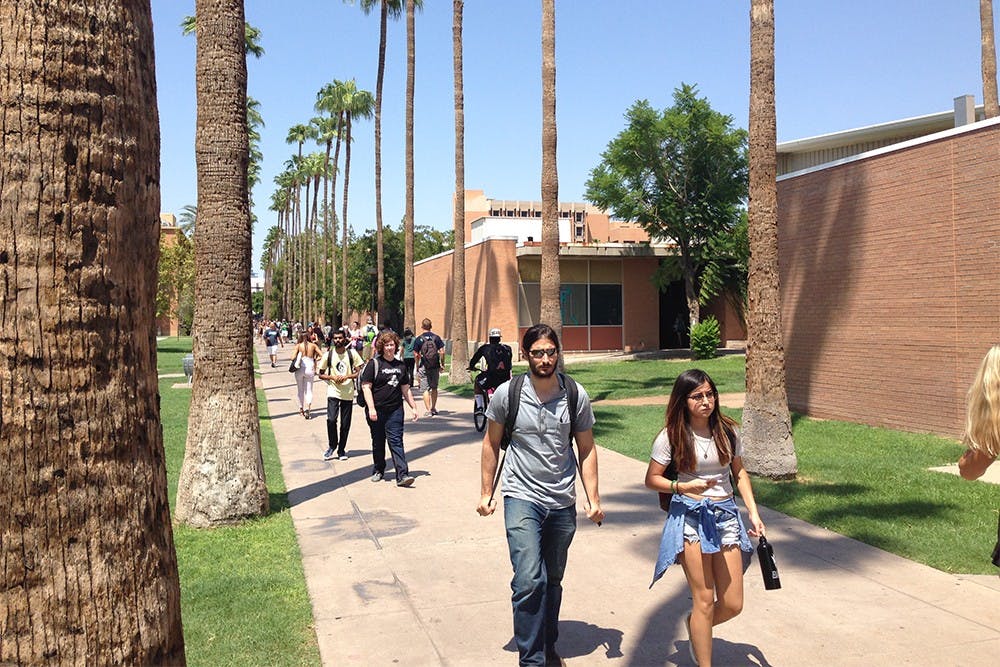Sexuality is natural, and sexual preference is a normal part of human development and life. Let's stop treating it like a dark corner of society's bedroom.
People are often silenced by society's requirement that sex not be discussed openly, proudly or at all. Ridiculing or even silencing those that have non-normative sexual preferences and expressions reinforces violence in our society. People think they can't talk about sex openly, which leads to violence of all magnitudes.
As a society, we need to be able to talk (and celebrate) our preferences. If we aren't open in our words, we won't be able to seek help when we need it, live our lives in the open or be healthy in our sexual encounters and interactions.
Just like one group of ASU students that practices BDSM were willing to speak about their sexual inclinations with The State Press, everyone should feel comfortable and free discussing sexual preferences.
Everyone, including the LGBT community, virgins, asexual people and those in healthy consensual adult relationships should be accepted no matter what. Your choices are your own, and society needs to move beyond awareness of these identities and preferences to acceptance.
Granted, The State Press is not advocating for individuals to have more or less sex, we are merely advocating for conversations surrounding sexual acceptance. We believe that open dialogue on the subject will combat the issues that result from silence.
Conversations about consent are hindered by the overarching aversion to talking about sex, and consent is the biggest issue surrounding relationships on college campuses. In short, if you can't talk about sex, you'll never be able to talk about it in the bedroom.
Despite an upswing in sex positivity and acceptance of BDSM, our schools are still teaching an archaic idea of sex to students. Arizona is a state that teaches "abstinence only," and numerous accidental and unplanned pregnancies will tell you that pushing sex under the rug is not working.
Children shouldn't be ashamed or ignorant of sex, and teaching them exclusively abstinence can lead some students to view the entire subject as taboo. Students exit elementary and junior high school with no idea what a healthy relationship looks or feels like — even one that includes sex. If we say "that's taboo, don't do it," students won't know how to use protection when they do want to have sex.
Silence on sex negatively affects how we treat women and girls. When we tell women and girls that they can't dress a certain way, for example, we internalize misogyny and repress expression. Encouraging conversation about sexuality and sexual expression will liberate women from sexual repression.
The other side of the slut-shaming coin is virgin-shaming. The media tells us that if you're not having sex, you must have a religious conviction that keeps you from getting it on. Bottom line, your sex life is a part of your life, and it should be able to be talked about openly without fear of shame.
Open sexual acceptance is slowly seeping into society, but people are still ashamed of who they are. Many are still ashamed by who they've slept with or the fact that they have slept with no one. This feeling of shame needs to be erased, and sexuality in all forms needs to be talked about. Only then can we achieve a healthy, sex-positive society.
Related Links:
'50 Shades of Grey' a festival of abuse porn
Dan Savage speaks about fetishes, insecurity
Want to join the conversation? Send an email to opiniondesk.statepress@gmail.com. Keep letters under 300 words and be sure to include your university affiliation. Anonymity will not be granted.
Like The State Press on Facebook and follow @statepress on Twitter.




